Drakeford, Nationalism and Welsh Political Traditions
20 May 2020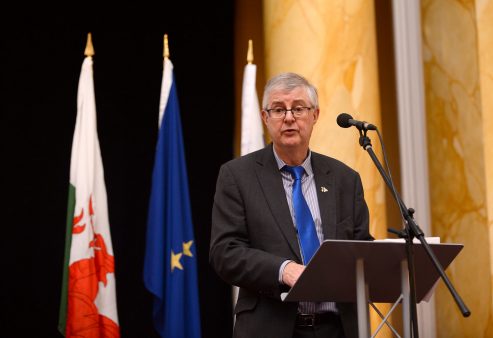
Last week, First Minister Mark Drakeford caused controversy with comments he made about the nature of nationalism. In an interview with the BBC’s Nick Robinson, Drakeford was asked whether he thought the best chance of achieving socialism in Wales was to adopt a nationalist position. Drakeford responded by declaring that nationalism is “an inherently right-wing creed that operates by persuading people that they are because they are against what somebody else is”. He argued that devolution was the “best of both worlds”, allowing Wales to remain part of the United Kingdom “and draw on the strength of being part of that collective whole”.
This is not a new rejection of nationalism by Mark Drakeford. In fact, the headline from his Keir Hardie Lecture in 2019 expressed this position: “Neither Nationalism nor Populism will secure Wales the future it deserves”. In that speech, Drakeford insisted that nationalism pits “working people against each other, based on the accident of geography, rather than drawing them together in a common cause”. Echoing Aneurin Bevan’s infamous sheep comments, Drakeford sought to not divide different parts of the UK:
“Of course there are struggles which need to be fought. But the struggle is not between working people in Merthyr and Middlesbrough, but between the powerful and privileged and those who are held back in a society marred by deep and deliberate inequality.
And that struggle is fatally undermined when it is diverted and diluted into the divisive dogmas of nationalism.”
Mark Drakeford, 2019 Keir Hardie Lecture
Drakeford’s comments echo views that have been expressed by many in the Labour Party. For instance, during the Twitter storm that followed Drakeford’s comments, Rhondda MP Chris Bryant responded to a post that insisted nationalism and socialism were not mutually exclusive. Bryant wrote: “That whole nationalist socialist thing didn’t go too well in Germany did it?”. Nationalism + socialism = National Socialism has been a common accusation by Labour Party politicians. Richard Wyn Jones has highlighted these persistent accusations against nationalists in Wales, from the likes of Ness Edwards, Leo Abse, Kim Howells and even Jim Griffiths, a prominent advocate of devolution[1]. Yet, despite efforts to challenge the accusations linking Welsh nationalists with fascism, it appears that some Labour politicians continue to harbour such views on their opponents.
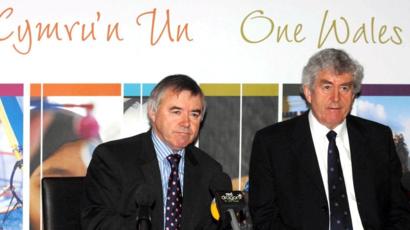
Image source: BBC
In 2007, Welsh Labour was confronted with a situation whereby they needed the help of the nationalists to form a government. As David Moon has detailed[2], this led to much wrangling and debate within Welsh Labour, with the views of those opposed to nationalism becoming prominent again. Yet, differences were put aside when Welsh Labour and Plaid Cymru formed the ‘One Wales’ coalition government.
Debates within Wales over the nature and validity of nationalism have persisted in Welsh political thought for a long time. Many politicians, activists and political thinkers have wrestled with the question of combining the twin ideas of radical politics with the idea of Wales as a nation. Yet, despite the experience of coalition government, the accusations have continued.
Not only is the dismissal of nationalism as an inherently right-wing ideology problematic[3], but in making these comments, Drakeford and Bryant are dismissing those in Wales, both outside and inside the Labour Party, who have made serious attempts to adopt both socialism and nationalism as part of their politics.
Socialism and Nationalism in Wales
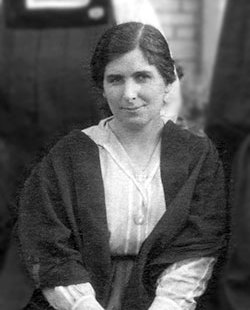
Outside the Labour Party several figures have over the years articulated a socialist understanding of the world around them while insisting on the need to acknowledge forms of Welsh culture, language and identity. Within Plaid Cymru, for example, a number of socialists became prominent in the party, such as D.J. Williams and the author Kate Roberts. As Laura McAllister has noted, although the party did not officially commit to socialism until 1981, “it is fair to describe Plaid as socialist-inclined for most of the post-war period”[4]. More recently, of course, former Plaid leader Leanne Wood has put socialism at the heart of her politics.
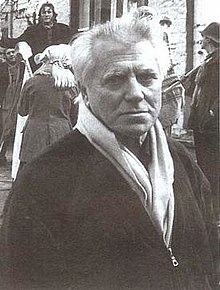
Image source: Wikipedia
Throughout the twentieth century, politicians, activists, historians and philosophers have grappled with the twin concerns of nation and class. As Douglas Jones has demonstrated, throughout its history Welsh members of the Communist Party of Great Britain attempted to put Wales at the heart of its socialism[5]. Within the New Left tradition in Britain, Raymond Williams also wrote of the interplay between socialism, culture and national identity[6]. The historian Gwyn Alf Williams is another notable figure on the left who saw the struggle for socialism and Welsh freedom as intrinsically linked. Writing in Marxism Today in 1982 during the midst of Thatcherism in Britain, he declared:
“For it has become evident to me in this, the worst crisis which my people, my nation and my socialism have faced, that the only honourable and worthwhile objective, however distant it now seems, for a Welsh socialist or a socialist in Wales who commits herself or himself to Wales, is a socialist republic of Wales, anchored among its sister socialist republics of the island of Britain, themselves anchored in their European reality”.
Gwyn Alf Williams writing in 1982.
Martin Wright has documented figures within the labour movement during the late 1800s to early 1900s who fused national sentiments and socialism together[7]. Examples include the likes of Sam Mainwaring, one of the founders of the Socialist League, who attempted “to graft socialist feeling and ideology onto Welsh national identity” in the late 1880s. The poet R.J. Derfel, whose work often demonstrated the complicated interplay between socialism and nationalism, wrote that nationalist patriotism would continue to be relevant under socialism:
“Patriotism of some type, I think, is bound to continue under socialism. I fail to see that any type of socialism asks me not to be a Welshman. The duty of every country is to organise its own house first, and after that help others, if it can. If it were possible to mix up all the nations together to make one nation out of the lot, I don’ t think anything would be gained. But that is impossible. What is needed is unity in diversity”[8].
R.J. Derfel
Wright wrote that from 1906-onward socialists “sought to appropriate the politics of Welsh nationalism”. A distinction was made between ‘spurious nationalism’ and ‘true nationalism’. True nationalism represented an attempt by socialists to “resolve an overarching tension between the universal, the national and the local that was inherent in the adoption of their doctrine”[9]. Wright then referenced Keir Hardie’s use of ‘pan-Celticism’ and Hardie’s call for “the red dragon of Wales…emblazoned on the red flag of socialism”.
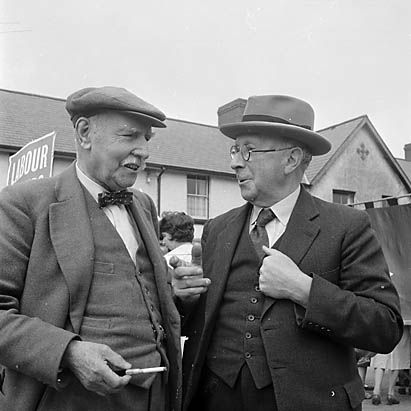
Other socialists of this period such as the poet T.E. Nicholas (‘Niclas y Glais’) combined a belief in socialism with a form of Welsh nationalism. As David Howell concluded, Nicholas “had spent his life championing causes he held dear, those of pacifism, the international brotherhood of mankind and a world free from poverty, greed and oppression. While he was above all committed to universal brotherhood, this did not prevent him from being at the same time a fervent Welsh patriot”. It is clear to see then that to these thinkers, nationalism was certainly not a right-wing creed.
The Labour Party and Welsh Nationalism
Although a number of the above figures would have rejected its politics[10], their concerns have also been shared by figures within the Labour Party. A vocal group of MPs and activists pressed for the party to adopt policies relating to Home Rule for Wales or for a Welsh Parliament, injecting into their politics concerns over national identity. In 1950 when the Parliament for Wales Campaign was established, it was supported by a number of Labour MPs: S.O. Davies, Cledwyn Hughes, Goronwy Roberts, T.W. Jones and Tudor Watkins[11]. Megan Lloyd George was President of the campaign. Although a Liberal MP at the time the campaign was launched, she later defected to the Labour Party in 1956.
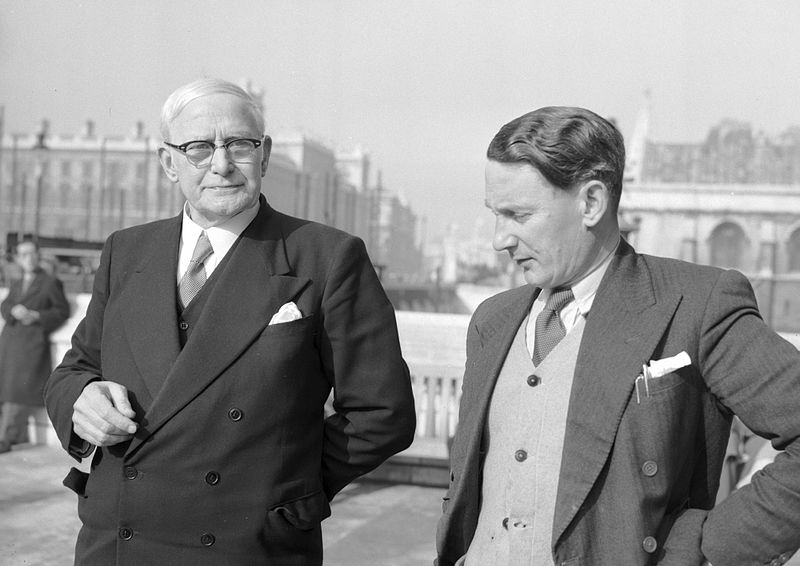
S.O. Davies was a forceful advocate of the need to combine principles of socialism with an acknowledgement of Welsh cultural difference. There was certainly a patriotic element to his politics:
“We are – and I do not apologise for it – a proud people. What is equally important, we are a nation of workers. Our whole history shows a high degree of political consciousness. We know our country and we love it. We have no alternative than to demand the largest measure of self-government”[12].
S.O. Davies speaking in 1948.
Yet, his advocacy of a Welsh Parliament also had practical implications for the creation of socialism in Wales. He argued that the nationalisation structures created by the Attlee government had led to the dominance of the civil service. Recognition of Wales as a distinct economic and political entity would “ease the pressure at Westminster in order that parliamentary democracy can work again”[13]. Echoing the sentiments of the likes of R.J. Derfel and T.E. Nicholas, Davies linked Welsh patriotism to a wider international struggle:
“We have no quarrel with any people or nation in this world. We are instinctively hospitable and we are a nation of workers. We can feel no enmity against any other people or nation, whatever their colour, creed or religion. We abhor the swashbuckling, fire-eating speeches which we had in this House, and as a Welsh nation we repudiate their sentiments. The heart of our hospitable country goes out to those who are struggling against tyranny and against obstruction, because we know that obstruction has been placed in the way of this little country to which I am proud to belong”[14].
S.O. Davies in 1953.
Far from being a right-wing creed, many figures throughout the labour movement in Wales have seen nationalist sentiment as being a fundamental part of their socialism. The ideas presented above were not based on the ‘narrow nationalism’ rejected by Welsh socialists but on improving the material conditions of people in society.
Many will of course disagree with the strategy of these thinkers; various people on the left in Wales would argue that it is in Westminster where the levers of economic power are held and are most effective. The Attlee government and the establishment of the welfare state have arguably demonstrated this. A case can also be made that nationalism has been taken on by politicians adopting a more inward-looking and xenophobic politics based on chauvinism and the splitting of the nation from international cooperation. But the idea that nationalism is inherently right-wing has been challenged by socialists within Wales and more importantly within Drakeford’s own party.
Fast forward to the onset of devolution in Wales and we can note Rhodri Morgan’s attempts to emphasise the Welsh in Welsh Labour. Throughout his time as First Minister, Morgan invoked a specifically Welsh radical tradition. In his ‘Clear Red Water’ speech – a speech drafted, according to Morgan, by none other than Mark Drakeford[15] – Morgan described himself as “a socialist of the Welsh stripe” and set out his policy as doing things the “Welsh way”. This rhetoric of developing ‘made in Wales’ policy has been a hallmark of Welsh Labour strategy, from Rhodri Morgan to Carwyn Jones[16].
Now it could be argued that this is not necessarily nationalism per se, simply an acknowledgement of the need for policy to be adapted to different locations. Nonetheless, the rhetoric of Welsh Labour since devolution represents an attempt to link radical politics to something inherently Welsh. It links the party’s politics and outlook to the culture of a place, a community and a nation. The myths, memories, symbols and traditions that Anthony D. Smith argues are central to a nation and to a community[17] have been regularly invoked by Welsh Labour.
Britishness and the Labour Party
It is clear then that ideas of the nation have played a fundamental part in shaping Welsh politics. But it is not only ideas of Wales and Welshness that contribute to the framing of politics in this country. It is also important to consider elements of British nationalism in political discourse. This is important when we consider what Drakeford advocates when he rejects Welsh nationalism: namely the idea that being part of the United Kingdom is most practical for Wales and its interests. By pooling resources, the four nations of the UK can work together, money can be redistributed to where it is needed, and social and economic difficulties can be tackled.
This belief has been a fundamental principle of the Labour Party since its inception. The faith placed in Westminster might be well-founded when we consider what the party has achieved through Parliament. It was the Labour Party that implemented major changes post-World War Two, establishing the NHS, implementing the welfare state, and involving the British state in many different areas of the economy and society. As Gwyn Alf Williams noted: “Wales, of course, shared fully in the massive spiritual transformation effected by the coming of the Welfare State, the National Health Service, the restoration of dignity and honour to a degraded people”[18].
But the veneration of these achievements that has since followed is often nationalistic in itself, representing a pride on the left in the British state. One of the main thrusts of David Coates’ book The Labour Party and the Struggle for Socialism – a left-wing critique of the Labour Party and the ideology of labourism –is that from the party’s formation, “the pursuit of class interests was mediated through a sensitivity to national ones”[19].
More recently, David Egerton has highlighted the importance of nationalism to the Labour Party:
“Once we ditch the assumption that we need to think of Labour either as liberal or socialist, we can begin to note the extraordinary importance of nationalism in its programme. Labour presented itself in 1945 as the true national party. Its manifesto barely included the word ‘socialism’ (which appeared once), or ‘socialist’ (which appeared twice). It was, by contrast, full of references to ‘Britain’ (fourteen times) and ‘British’ (twelve times) and ‘nation’ and ‘national’ (nearly fifty times), more than ‘public’ (twenty-three)!”[20]
David Edgerton writing in The Rise and Fall of the British Nation.
Edgerton discusses the prevalence of British nationalism, suggesting that Labour could be seen “as the nationalist party” after World War Two[21].
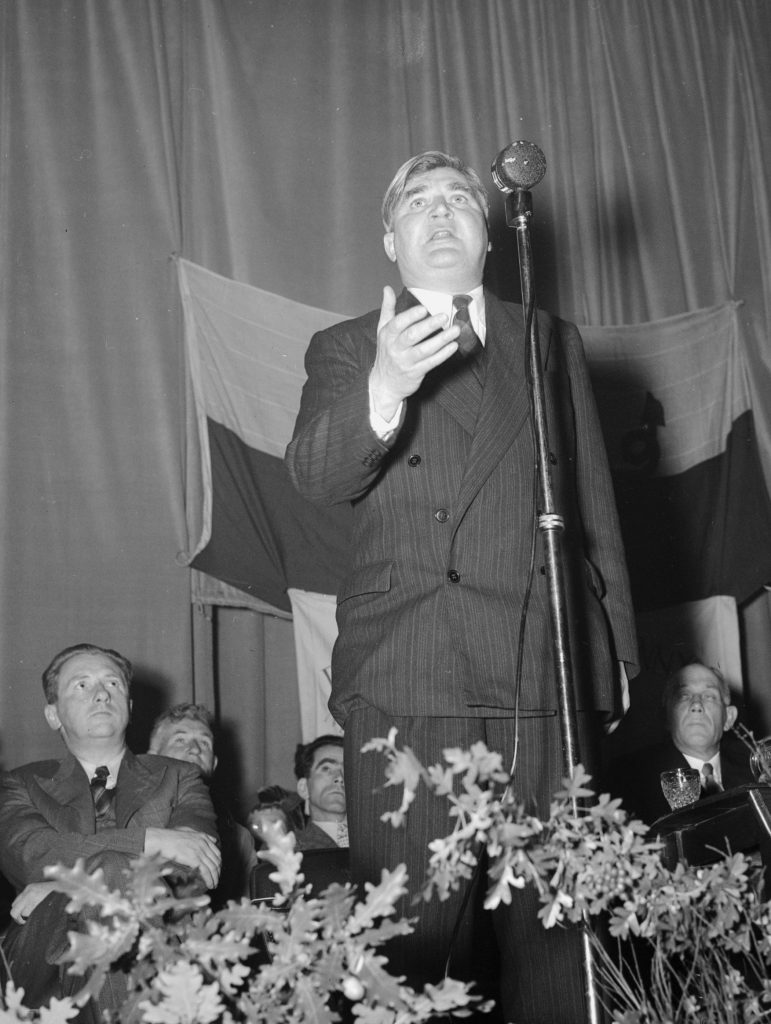
The role of nationalism can be seen in the work of one the party’s most prominent figures Aneurin Bevan. Writing in the build-up to World War Two, Bevan argued that symbols of Britishness were being co-opted by the ruling class. He wrote that the Union Jack “is regarded by [the British ruling class] as a national flag only when their class interests and the nation’s coincide”. There was “no protection for a British subject under the Union Jack unless he is promoting the interests of the British ruling class”[22]. Bevan’s response was not to abandon national symbols, but instead for the working class to capture them. He urged the working class to step “forward in the defence of these liberal institutions and conceptions of liberty, for they are necessary to its own progress and ultimate victory”. Following this, the working-class uses these symbols and creates a new hegemony:
“Then begins the struggle for the symbols. In this struggle the working class reverses the position…By defending the symbols which are universally revered, it identifies its own class interest with the general interest and begins to draw strength from both sources”[23].
Aneurin Bevan in 1938.
Whether it be British or Welsh in nature, nationalism is a major feature of Labour Party politics.
Conclusion
We can see therefore that nationalism has played an influential role in politics across the UK. As Richard Wyn Jones points out, nationalism is central to politics throughout the world[24]. The Labour Party is no exception to this.
Of course, this is highly unlikely to be at the forefront of Drakeford’s mind at the current time. His focus will be on navigating Wales through this crisis. It is unfortunate that this issue has raised its head during the crisis – Drakeford was simply answering a question rather than going on a premeditated attack against nationalists. Nor will it be a concern to most people living in Wales (in normal and extraordinary times).
Even so, when Welsh politics starts to regain some semblance
of normality, there is no doubt that these debates will appear again. Welsh
identity is deeply contested and its place within Welsh politics even more so. In
some ways, this crisis has brought these issues to the fore. When they do
return to occupy the minds of politicians and voters, it is worth remembering
the intellectual traditions that lie at the heart of Welsh politics and for
politicians to approach these issues more thoughtfully.
[1] Richard Wyn Jones. 2014. The Fascist Party in Wales? Plaid Cymru, Welsh Nationalism and the Accusation of Fascism. Cardiff: University of Wales Press.
[2] David S. Moon. 2016. ‘We’re Internationalists, not Nationalists’: The Political Ramifications of Welsh Labour’s Internal Power Struggle over the ‘One Wales’ Coalition in 2007. Contemporary British History 30(2), pp. 281-302.
[3] “Experience tells us…there are usually several different nationalisms which claim to represent the same nation at the same time. Their programmes offer different definitions of their nation’s identity and purposes, and these definitions are often conflicting. Some nationalists are liberal and democratic; others are authoritarian, or worse. Some are eager to mend fences with neighbours; others are looking for a fight wherever they can find one” (Erica Benner. 2018. Really Existing Nationalisms: A Post-Communist View From Marx and Engels. London: Verso, p. 8).
For a discussion of the ideology of nationalism and the way it manifests itself within Plaid Cymru, see the discussion in Laura McAllister 2001. Plaid Cymru: The Emergence of a Political Party. Bridgend: Seren, Chapter 6: The Ideological Perspective.
[4] ibid, p. 182.
[5] Douglas Jones. 2017. The Communist Party of Great Britain and the National Question in Wales 1920-1991. Cardiff: University of Wales Press.
[6] See Raymond Williams. 2003. Who Speaks for Wales? Nation, Culture, Identity. Daniel G. Williams. ed. Cardiff: University of Wales Press.
[7] Martin Wright. 2016. Wales and Socialism: Political Culture and National Identity Before the Great War. Cardiff: University of Wales Press.
[8] Quoted in ibid, p. 199.
[9] ibid, pp. 219-220.
[10] For example, despite Nicholas playing a role in the establishment of a Labour Party in Cardiganshire, he was expelled from the party for criticising Ramsay MacDonald for being too right-wing. He later argued that ‘the greatest threat to us as workers comes from Attlee, Morrison and the official Labour Party’ (see David W. Howell. 1991. Nicholas of Glais: The People’s Champion).
[11] Allan Butt Philip. 1975. The Welsh Question: Nationalism in Welsh Politics 1945-1970. Cardiff: University of Wales Press, p. 279.
[12] Hc Deb 26 January 1948, cc776.
[13] Quoted in Rob Griffiths. 1983. S.O. Davies: A Socialist Faith. Llandysul: Gomer Press, pp. 170-171.
[14] Hc Deb 22 January 1953 cc411-517.
[15] Rhodri Morgan. 2017. Rhodri: A Political Life in Wales and Westminster. Cardiff: University of Wales Press, p. 250.
[16] See: David S Moon. 2012. Rhetoric and policy learning: On Rhodri Morgan’s ‘Clear Red Water’ and ‘Made in Wales’ health policies. Public Policy and Administration 28(3), pp. 306-323 and David S Moon. 2017. Red Dragon FM: Carwyn Jones’s ‘Welsh Labour Rhetoric’. In: Atkins, J. and Gaffney, J. eds. Voices of the UK Left: Rhetoric, Ideology and the Performance of Politics. Basingstoke: Palgrave Macmillan, pp. 123-146.
[17] Anthony D. Smith. 1986. The Ethnic Origins of Nations. Oxford: Basil Blackwell.
[18] Gwyn Alf Williams. When Was Wales?. Reading: Pelican, p. 254.
[19] David Coates. 1975. The Labour Party and the Struggle for Socialism. London: Cambridge University Press, p. 137.
[20] David Egerton. 2018. The Rise and Fall of the British Nation: A Twentieth-century History. Milton Keynes: Allen Lane, p. 219.
[21] ibid, p. 386.
[22] Aneurin Bevan. 1938a. A Swastika Nailed to England’s Mast. Tribune 24 June 1938, p. 7.
[23] Aneurin Bevan. 1938b. This is How Fascism is Born. Tribune 1 July 1938, p. 7.
[24] Richard Wyn Jones. 2014, p. 69.
Comments
3 comments
Comments are closed.
- December 2025
- November 2025
- October 2025
- September 2025
- June 2025
- May 2025
- March 2025
- February 2025
- December 2024
- October 2024
- September 2024
- July 2024
- June 2024
- December 2023
- November 2023
- August 2023
- February 2023
- December 2022
- November 2022
- September 2022
- July 2022
- April 2022
- March 2022
- January 2022
- October 2021
- July 2021
- May 2021
- March 2021
- January 2021
- November 2020
- October 2020
- August 2020
- July 2020
- June 2020
- May 2020
- April 2020
- March 2020
- October 2019
- September 2019
- June 2019
- April 2019
- March 2019
- February 2019
- December 2018
- October 2018
- July 2018
- June 2018
- April 2018
- December 2017
- October 2017
- July 2017
- June 2017
- May 2017
- April 2017
- March 2017
- February 2017
- January 2017
- December 2016
- November 2016
- October 2016
- September 2016
- Bevan and Wales
- Big Data
- Brexit
- British Politics
- Constitution
- Covid-19
- Devolution
- Elections
- EU
- Finance
- Gender
- History
- Housing
- Introduction
- Justice
- Labour Party
- Law
- Local Government
- Media
- National Assembly
- Plaid Cymru
- Prisons
- Reform UK
- Rugby
- Senedd
- Theory
- Uncategorized
- Welsh Conservatives
- Welsh Election 2016
- Welsh Elections
Hi Nye,
I totally agree with Mark Drakeford’s statement that adopting nationalism to achieve socialism, (that some believe Nicola Sturgeon, Scottish Nationalist Party Leader is trying portray), is not consistent with Socialism. Nationalist politics are more akin to isolationism and protectionism.
Just Another Thought!
“If we care to look at the political spectrum, and view a continuous sequence in which adjacent elements appear to be perceptibly different from each other, ….. just imagine looking along a continuum as if it were a piece of string, and then draw the opposing sides of the string together, you will see that both extreme left & right will not be as diametrically opposed as you might first imagine, except, one is called Communism and the other, totalitarianism, which are both fundamentally, nationalistic. Perhaps China and North Korea are prime examples.
Kind regards, Paul R
This is not what History says. Hitler was a National Socialist and Stalin was an International Socialist. Nationalism as patriotism has nothing to do with either.
Curtailing of liberties and muddled thinking are now prevalent amongst all parties in the Senedd – CV19 responses being a prime example. e.g. You cannot buy a can opener locally under lock down, but you can buy it off Amazon – a low tax paying globalist entity that will not benefit the communities it works within to the extent that my local store or supermarket could. Fair play indeed.
So all parties are advocating similar, and relying on PCR Test data that is fundamentally flawed (but prepared by scientists I hear you say). The chances of the politicians truly understanding both arguments on the scientific debate are next to zero. why? Because they are likely to be ex lawyers, bankers, trade union representatives, former councillors, student union reps etc with little if any ‘hard fact’ understanding or experience of the real world and rarely of scientific debate. Fusspots springs to mind. As a result we end up with flawed statements on the number of cases rising (based on increased testing) and a response that is both illogical and will not work! See Sweden where the approach is working,
I and many others are now starting to realise what a one party state with would look like. It’s not pretty and under the national socialists I suspect it would be even worse – heaven forbid. For now we have Mr Drakeford and Mr Gething spouting mixed nonsense and Mr Skates almost invisible. But we can sell the English our water – the number of times I have heard dross like that as an indicator that Wales will prosper makes me wonder about the state of business education in Wales – basic stuff that is woefully explained.
Anyway, I am off to buy a few bottles of wine and some cheese for lockdown, but the cheese slicer will have to with until after lockdown. Heaven forbid need new underpants – “Jeff – Dai here – can you send me some underpants by Prime Delivery please…”